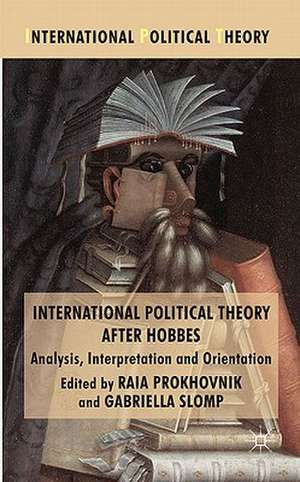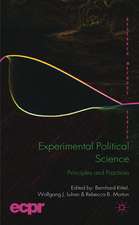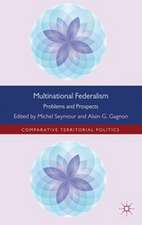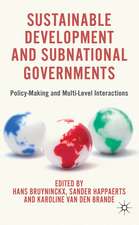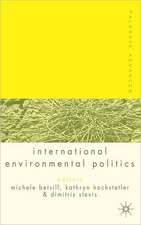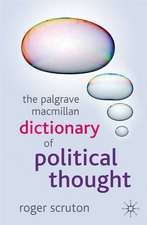International Political Theory after Hobbes: Analysis, Interpretation and Orientation: International Political Theory
Editat de R. Prokhovnik, G. Slompen Limba Engleză Hardback – 5 ian 2011
| Toate formatele și edițiile | Preț | Express |
|---|---|---|
| Paperback (1) | 382.95 lei 6-8 săpt. | |
| Palgrave Macmillan UK – 5 ian 2011 | 382.95 lei 6-8 săpt. | |
| Hardback (1) | 383.93 lei 6-8 săpt. | |
| Palgrave Macmillan UK – 5 ian 2011 | 383.93 lei 6-8 săpt. |
Din seria International Political Theory
- 18%
 Preț: 1231.47 lei
Preț: 1231.47 lei -
 Preț: 357.89 lei
Preț: 357.89 lei - 15%
 Preț: 636.45 lei
Preț: 636.45 lei -
 Preț: 158.77 lei
Preț: 158.77 lei -
 Preț: 358.18 lei
Preț: 358.18 lei - 9%
 Preț: 737.58 lei
Preț: 737.58 lei -
 Preț: 382.95 lei
Preț: 382.95 lei - 15%
 Preț: 466.31 lei
Preț: 466.31 lei - 15%
 Preț: 643.00 lei
Preț: 643.00 lei -
 Preț: 213.97 lei
Preț: 213.97 lei -
 Preț: 385.84 lei
Preț: 385.84 lei - 15%
 Preț: 641.03 lei
Preț: 641.03 lei -
 Preț: 385.84 lei
Preț: 385.84 lei -
 Preț: 394.87 lei
Preț: 394.87 lei - 18%
 Preț: 890.37 lei
Preț: 890.37 lei - 15%
 Preț: 634.14 lei
Preț: 634.14 lei - 15%
 Preț: 635.15 lei
Preț: 635.15 lei - 18%
 Preț: 727.00 lei
Preț: 727.00 lei -
 Preț: 388.72 lei
Preț: 388.72 lei - 15%
 Preț: 642.51 lei
Preț: 642.51 lei - 18%
 Preț: 729.36 lei
Preț: 729.36 lei - 15%
 Preț: 639.08 lei
Preț: 639.08 lei -
 Preț: 391.61 lei
Preț: 391.61 lei -
 Preț: 394.51 lei
Preț: 394.51 lei -
 Preț: 389.70 lei
Preț: 389.70 lei - 18%
 Preț: 736.50 lei
Preț: 736.50 lei -
 Preț: 385.62 lei
Preț: 385.62 lei -
 Preț: 388.52 lei
Preț: 388.52 lei -
 Preț: 392.60 lei
Preț: 392.60 lei -
 Preț: 384.86 lei
Preț: 384.86 lei - 15%
 Preț: 638.89 lei
Preț: 638.89 lei -
 Preț: 390.63 lei
Preț: 390.63 lei
Preț: 383.93 lei
Nou
Puncte Express: 576
Preț estimativ în valută:
73.47€ • 76.42$ • 60.66£
73.47€ • 76.42$ • 60.66£
Carte tipărită la comandă
Livrare economică 14-28 aprilie
Preluare comenzi: 021 569.72.76
Specificații
ISBN-13: 9780230241145
ISBN-10: 023024114X
Pagini: 216
Ilustrații: X, 216 p.
Dimensiuni: 140 x 216 x 20 mm
Greutate: 0.32 kg
Ediția:2011
Editura: Palgrave Macmillan UK
Colecția Palgrave Macmillan
Seria International Political Theory
Locul publicării:London, United Kingdom
ISBN-10: 023024114X
Pagini: 216
Ilustrații: X, 216 p.
Dimensiuni: 140 x 216 x 20 mm
Greutate: 0.32 kg
Ediția:2011
Editura: Palgrave Macmillan UK
Colecția Palgrave Macmillan
Seria International Political Theory
Locul publicării:London, United Kingdom
Cuprins
Introduction; R.Prokhovnik & G.Slomp ANALYSIS The Politics of Motion and the Motion of Politics; G.Slomp Hobbes, Public Safety and Political Economy; T.Sorrell Leviathan and Liberal Moralism in International Theory; G.Newey INTERPRETATION Hobbes and the Subjection of International Relations to Law and Morality; C.Boisen & D.Boucher Kantian Perspectives on Intervention: Transcending Rather than Rejecting Hobbes; H.Williams The State of Nature as a Site of Happy Life: On Giorgio Agamben's Reading of Hobbes; S.Prozorov ORIENTATION Recasting the Hobbesian Legacy in International Political Theory; M.C.Williams Hobbes, Origins, Limits; R.Walker Hobbes, Sovereignty, and Politics: Rethinking International Political Space; R.Prokhovnik
Recenzii
'The book focuses well on underappreciated aspects of Hobbesian debates in contemporary international relations literature and gracefully incorporates current events to illuminate the pointed (though sometimes arcane) aspects of Hobbes' thought emphasised throughout.' -Political Studies Review
Notă biografică
CAMILLA BOISEN Research Associate at the National History Museum, Frederiksborg Castle, Denmark DAVID BOUCHER Professor in the School of European Studies at Cardiff University, Wales, UK GLEN NEWEY Professor in the School of Politics, International Relations and Philosophy at Keele University, UK RAIA PROKHOVNIK Reader in Politics at the Open University, UK SERGEI PROZOROV Collegium Research Fellow at the Helsinki Collegium for Advanced Studies, University of Helsinki, Finland GABRIELLA SLOMP Senior Lecturer at the University of St Andrews, UK TOM SORELL John Ferguson Professor of Global Ethics and Director of the Centre for the Study of Global Ethics at the University of Birmingham, UK ROB WALKER Professor in the Department of Political Science at the University of Victoria, Canada HOWARD WILLIAMS Professor in the Department of International Politics at the University of Abersytwyth, Wales, UK MICHAEL WILLIAMS Professor in the Graduate School of Public and International Affairs at theUniversity of Ottawa, Canada
